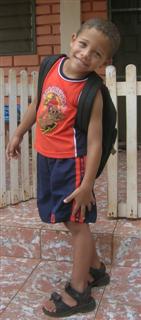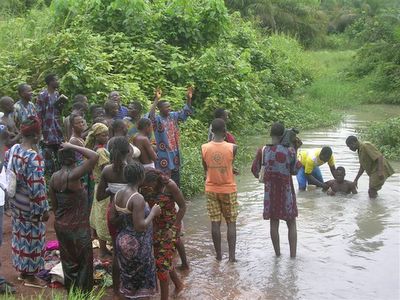It’s often been said that the Old Testament concept of missions is centripetal while the New Testament idea is centrifugal. If you’re like me, you’ll have trouble keeping those terms straight. Centripetal has the idea of a force pulling something towards its center. A pretty convincing case can be made that the Jewish people, even up until Jesus’ day, did not engage in very many active efforts to bring non-Jews into the community of God’s people. Instead, the dominant vision was of an eschatological drawing of all peoples to Zion. Isaiah 49:6 is an exception, which speaks of God’s salvation going out to the ends of the earth. But that was always something that would come later, and something that God would take care of.
When we get to the New Testament, however, there is a different vision. A vision of actually Going to the ends of the earth to make disciples of all the nations. Jesus uses the wording of Isaiah 49:6 to talk about the intentional witness of the Christian community. Just as a centrifuge spins and scatters its contents, the good news of Jesus is to be scattered to the ends of the earth.
As can so easily happen, however, we need to avoid making a false dichotomy between these two. Didn’t Jesus say that when he is lifted up, he will draw all people to himself? That sounds centripetal to me. And that city set on a hill? The light works both ways – both to draw people to it, and to reach out and pierce through the darkness, giving hope to those who are lost outside the city gates. It’s a tragedy if we just set inside our comfortable church buildings and wait for God to bring people to us. It is equally a tragedy when we fail to embrace those he does bring. When those who are lost are drawn to the city gates, what if they remain shut, and newcomers are excluded. Could it be that newcomers to our churches ever feel that way, as they struggle to get past the walls of our warm, intimate fellowship? Is that fellowship ever warm and intimate to those on the inside, but cold and intimidating to those trying to get in?
Here’s another passage from Guder that might help pull some of this together:
“The New Testament model for this understanding of incarnational evangelization is Jesus himself. In his encounters with people, he constantly revealed his love for those to whom he ministered. He dealt with individuals as individuals, he communicated with his hearers in terms they could understand, and he did not always say everything there was to say. He accepted the measure of faith that was brought to him and worked with that faith, regardless of how immature or inadequate it might have been. What Jesus said and what he did were congruent, and the heart of his message was that God was a loving Father to whom the prodigal could return home, just as he was himself a friend to whom the outcasts, the prostitutes, and the publicans could come and find help.
The network of relationships within which we live is the primary place where evangelization is tot take place. This is where every Christian is a witness. But it is also the harder place to say the witness, because congruence between being, doing, and saying is hard to achieve. It is, ultimately, easier for the preacher to go straight from the study to the pulpit and proclaim the word. But it is more incarnational to go from the study to the people, to share in their life, and to share one’s life with them, and then to grapple with the ambiguities and shadowy sides of normal life—and out of that crucible to go into the pulpit and evangelize.
By the same token, it is easier to approach a total stranger, develop a conversation in which a ‘testimony’ is given, and then present the gospel. It is far more difficult to live with one’s ‘neighbors’ daily and to put words on one’s convictions, explaining who one is and why one lives in a certain way, called Christian. It is, of course, more ‘natural’ to say the witness in such a way that the gospel surfaces out of the interactions of daily of daily life. Through his relationships, the Christian explains and shares himself” (pp. 146-147; emphasis mine, ap).









